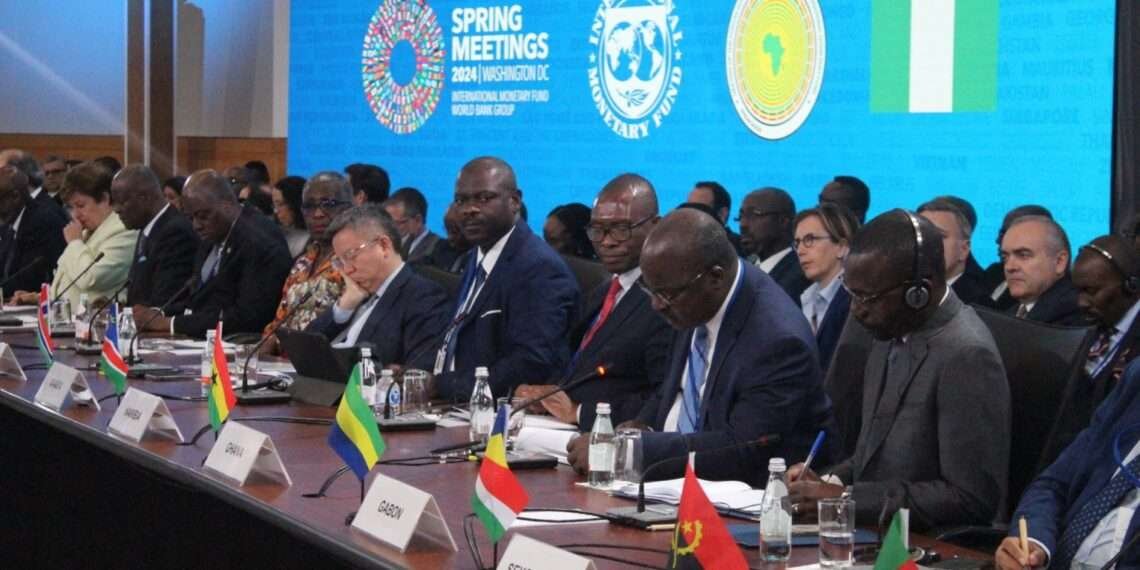In economic development, the term “standard” often becomes a contentious point of discussion, particularly among African leaders.
Rather than aspiring to meet global benchmarks and emulate success stories from thriving economies, there appears to be a persistent inclination towards requesting standards and conditions to be tailored to favor the continent’s shortcomings.
This perpetual reluctance to confront economic realities head-on has become a detrimental pattern, hindering progress and perpetuating a cycle of underperformance.
At the 2024 African Consultative Group (ACG) meeting, held during the ongoing IMF/World Bank Spring meeting in Washington DC, the Governor of the Bank of Ghana, Dr. Ernest Addison, called for tailored financing support for low-income countries to address the unique economic challenges faced by nations with limited resources.
“We underline the necessity for the upcoming comprehensive review of [low-income countries] LICs facilities to maintain the [Poverty Reduction and Growth Trust ] PRGT’s concessional and promote higher access to reverse erosion amplified by the global inflationary episode.”
“We also underscore the criticality of replenishing the [Catastrophe Containment and Relief Trust] CCRT resources envelope to offer grant support to our most vulnerable members in this shock-prone world. In this regard, we call for intensified fundraising efforts under the second phase of the resource mobilization initiatives.”
Dr. Ernest Addison
The PRGT is the Fund’s main vehicle for providing concessional financing (currently at zero interest rates) to low-income countries.
The CCRT on the other hand provides grants for debt relief for the poorest and most vulnerable countries hit by catastrophic natural disasters or public health disasters.
Dr. Addison emphasized the importance of meaningful collaboration between the IMF and the World Bank to better align their support mechanisms for LICs.
He stressed the necessity of coordination between the IMF’s LIC Facilities Review and the World Bank’s IDA21 replenishment efforts, advocating for a holistic approach to support LICs in navigating the complex economic landscape.
Furthermore, Dr. Addison underscored the need to keep all financing options on the table, “including the use of the Fund’s internal resources.”
He called for a modest gold sale, particularly amidst favorable gold prices, to bolster financial reserves and address the economic challenges exacerbated by recent shocks and crises.
Leadership Accountability, Key to Economic Transformation

The recent discourse surrounding Ghana’s economic challenges, as articulated by the Governor of the Bank of Ghana, Dr. Ernest Addison, underscores the broader issue of leadership accountability and proactive economic stewardship.
The crux of the issue lies not in the absence of resources or potential solutions, but rather in the leadership’s reluctance to confront the root causes of Ghana’s financial woes.
The initiatives proposed by the governor merely scratch the surface of a deeply ingrained issue of economic mismanagement. Had it not been the case, Ghana would not have sought an IMF bailout for the 18th time.
Furthermore, one cannot help but question why Ghanaian leaders persistently opt to lower the bar rather than strive to elevate the nation to meet global standards.
Instead of asking what successful economies are doing right and emulating their strategies for prosperity, there seems to be a predilection for seeking shortcuts or special considerations.
This mindset not only undermines Ghana’s credibility on the international stage but also perpetuates a cycle of dependency and underachievement.
The core of effective leadership lies in accountability and vision. It necessitates a willingness to confront uncomfortable truths, devise bold strategies, and implement decisive actions.
While it is essential to acknowledge the prevailing economic challenges, true leadership demands proactive solutions rather than passive acceptance of the status quo.
Moreover, the responsibility does not solely rest on the shoulders of political leaders but extends to every echelon of society. Civil society organizations, the private sector, and the citizenry at large must actively engage in fostering a culture conducive to national transformation.
Only through collective effort and unwavering commitment to progress can Ghana transcend its current economic limitations and unlock its full potential.
READ ALSO: Government’s Priorities in Education Sector Criticized























